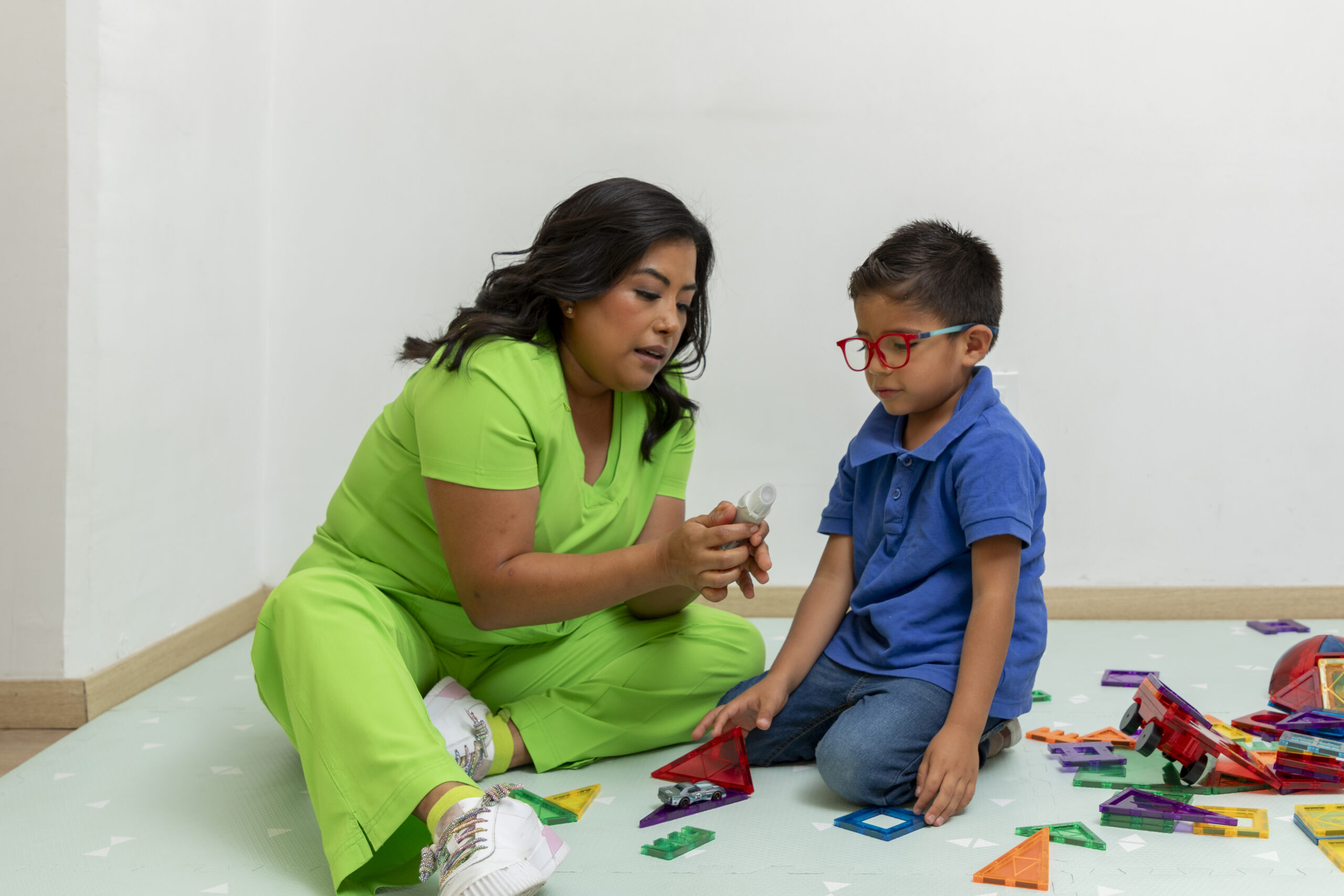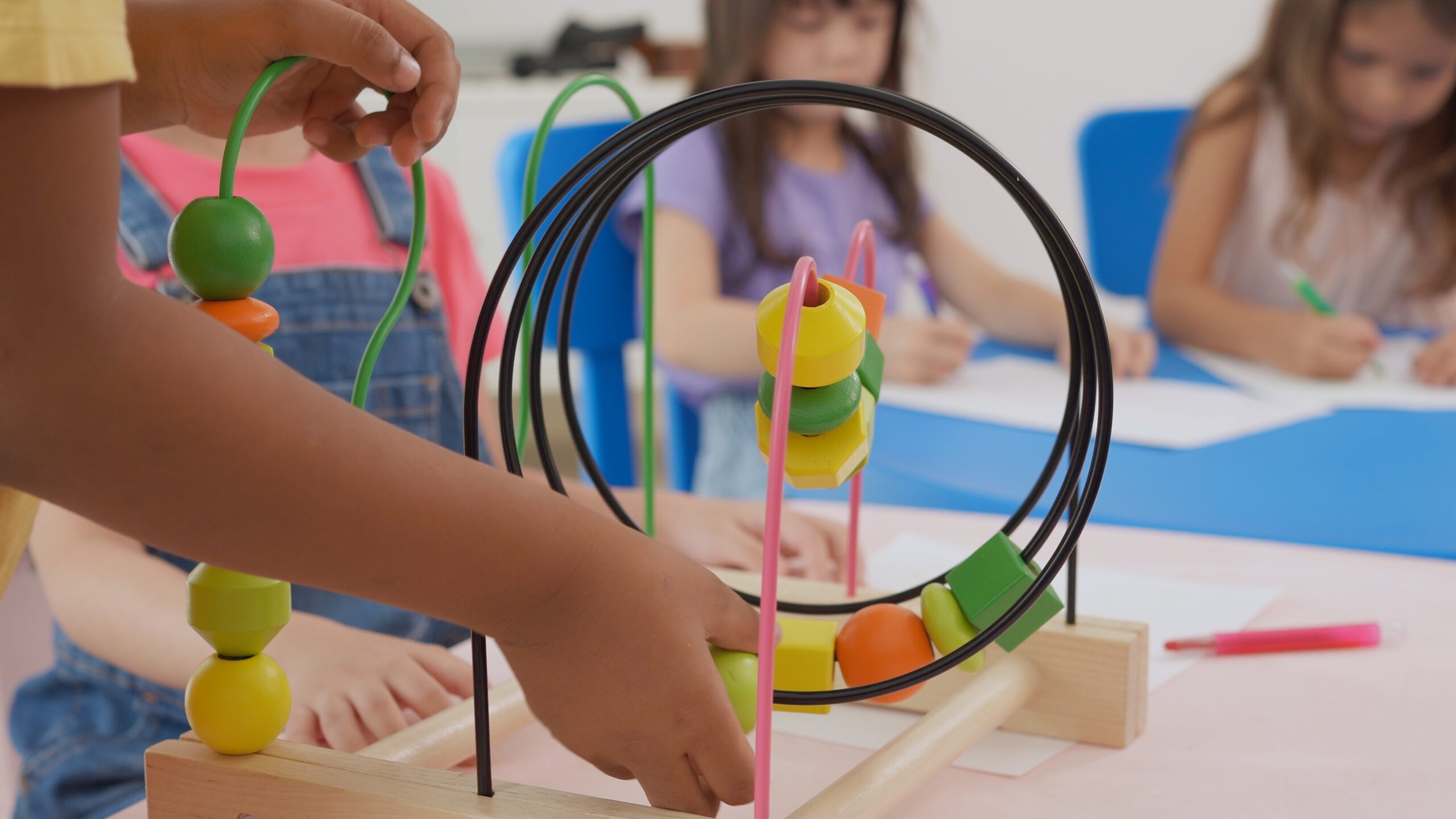Does your child need occupational therapy? A very valid question and certainly the one questions that may trigger you at a point as a devoted parent! Your journey as a parent becomes both relishing and overwhelming when you feel a surge of emotions running through you every time you look at your child grow and develop. Described as one of life’s greatest joys, the feeling is inspirational for a parent to aspire to achieve the best for their child in this phase, striving for a dazzling, bright future for them. Yet, there are cases where the child seems to miss certain milestones, struggling to cope with them when encountering them in their daily lives.
Those tiny things where they struggle to button their shirt, avoid certain textures, or have difficulty with playground activities. Activities that the other children of the same age group might handle quite easily. These are subtle observations that, though very plain and straightforward, catch your attention, leaving you perplexed, wondering whether your child might benefit from additional support.
Pediatric occupational therapy would offer specialised intervention and thus help the child develop the essential skills from the core at the very preliminary stages. Skills required for daily living, learning, playing, and interacting can indicate that your child might benefit immensely from occupational therapy if intervention occurs early, thus empowering you to take proactive steps towards supporting their development.
Occupational therapy focuses entirely on letting children master the “occupations” of childhood—everything from self-care tasks like dressing and eating to academic skills like handwriting and playground interactions. The earlier these challenges are addressed, the more effective solutions can help the child build confidence and self-esteem, and foster independence in their daily activities.
Decoding Pediatric Occupational Therapy

Pediatric occupational therapy is a specialised therapy that addresses the unique developmental needs of children, from birth through adolescence. Licensed occupational therapists work with children who typically experience a delay in their cognitive abilities, including memory, attention, focus, problem-solving, and reasoning. OT helps improve the skills that are required for daily living and independence.
It is because of these delays, disabilities, and difficulties that impact the child’s ability to participate fully in daily activities. These highly skilled and experienced veterans focus on enhancing fine motor skills, gross motor coordination, sensory processing, cognitive abilities, and social-emotional development.
Initiating play-based interventions that incorporate evidence-based techniques, occupational therapists help children develop foundational skills necessary for confident, independent living with a purpose. Theracare Pediatrics Services specializes in providing comprehensive occupational therapy across Arizona, with over 250 qualified therapists dedicated to helping every child reach their full potential. Their therapists undergo quarterly training to ensure they’re utilizing the latest research-based approaches in pediatric care.
The scope of pediatric occupational therapy stretches far beyond those traditional clinical settings. It is not just being present at the clinic; those therapists work remotely in schools, homes, and community centers, as well as in dispensing healthcare facilities, providing intervention in the environments where children spend their time.
What are the Benefits of Occupational Therapy for Your Child
Children who have received occupational therapy have shown gradual progress in multiple areas of development. The therapy sessions are primarily focused on addressing the fundamental skills that enhance academics, ensuring an active participation socially for a successful, independent personality and social interaction.
Specifically targeting those children who have been diagnosed with conditions such as autism spectrum disorder, cerebral palsy, Down syndrome, or ADHD, occupational therapy ensures interventions that address specific challenges. There, however, are children who, without any formal diagnosis, benefit tremendously from occupational therapy.
This is a therapeutic process that begins by evaluating the child’s areas of strength and weakness, or areas where they may be lagging. Therapists develop customized treatment plans that are tailored to each child’s unique needs, comprehensively covering their areas of interest and motivation. This very personalised approach, along with a tailored treatment plan, ensures that therapy remains engaging while addressing specific developmental goals.
Theracare Pediatrics Services believes passionately in helping each child blossom to their ultimate potential. Their experienced team creates customized interventions that consider each child’s unique needs, family dynamics, and environmental factors that influence development.
Signs Your Child May Need Occupational Therapy

1. Sensory Processing Difficulties
Children fighting sensory processing challenges may show extreme reactions to everyday sensory experiences. They might refrain from approaching certain sounds, textures, or visual stimuli, or, conversely, seek intense sensory input. These reactions to external stimuli could significantly impact their daily functioning and, consequently, reduce their social participation.
Probable signs of sensory processing difficulties include the refusal to touch specific materials.
There could be overwhelming reactions in busy environments, as well as unusual responses to movement-related activities. Here, some children may be more sensitive to clothing tags, loud noises, or certain food textures, while others might crash into furniture or engage in rough play excessively.
2. Delays in Fine Motor Skills

Fine motor skill development involves the coordinated and balanced use of small muscles, specifically those in the hands and fingers. Children with fine motor delays may struggle particularly with tasks that require precision and bilateral coordination. These difficulties often become apparent during self-care activities and academic assignments.
Observe whether the child is experiencing any difficulties using both hands together while playing. The child experienced specific challenges while buttoning shirts, tying shoes, or performing activities that required precise hand movements. There may also be potential signs of fatigue when performing particular writing tasks, such as a poor pencil grip and substandard handwriting quality.
3. Challenges With Self-Care
Independence in self-care activities is a crucial developmental milestone. Children who struggle most with age-appropriate tasks certainly benefit from occupational therapy, and its timely intervention ensures comprehensive development of essential life skills.
From finding it challenging to dress independently to problems associated with feeding skills and struggles with personal hygiene tasks, even though variations to a certain extent from what is considered normal are fine, persistent difficulties that could ruin the daily routine and thus indicate the need for professional intervention would prove pivotal.
4. Difficulty Regulating Emotions
The ability to self-regulate emotions and behaviors is crucial in determining social success in various settings and relationships. Children who struggle to manage their emotional responses effectively often fail to cope in multiple settings and relationships.
Signs may include frequent meltdowns that are disproportionate to the situation—lacking the ability to calm down using basic strategies, or those extreme reactions to minor routine changes. The child is overwhelmed, finding it challenging to transition between activities.
5. Social Communication Challenges
While there are speech therapists who address any possible concerns, primarily by targeting underlying skills such as eye contact, confident body language, and social awareness, thereby benefiting from occupational therapy intervention. Children who frequently avoid eye contact often struggle with reading social cues, which are essential for building relationships and succeeding in social environments.
When to Seek Professional Help

If there are signs that are affecting your child’s regular functioning and inducing abnormalities, you should consider seeking professional help from a pediatrician about the evaluation of occupational therapy. Intervening early could result in improved outcomes, thus preventing many secondary issues from developing.
Trust your instincts as a parent. If you have concerns about your child’s development, don’t hesitate to seek professional guidance. With appropriate support, children can develop the skills they need to thrive in all areas of their lives.
Theracare Pediatrics Services provides comprehensive evaluations throughout Arizona, ensuring that families in even the most rural areas have access to qualified assessments and treatment. The team of experienced therapists utilizes standardized assessments and clinical observation to develop a comprehensive understanding of each child’s needs.





